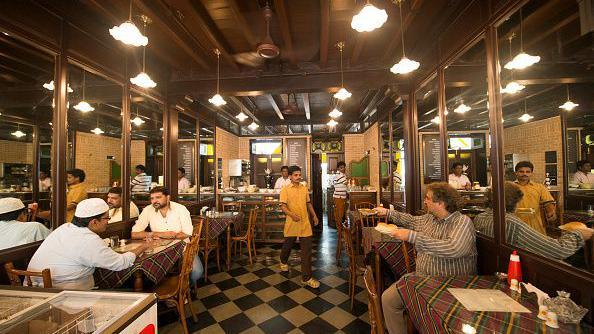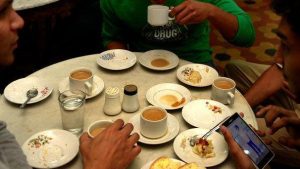The Decline of Iconic Irani Cafes in Hyderabad: A Cultural Legacy at Risk
3 min read

Irani cafes, with their distinctive marble-topped tables, old-fashioned clocks, chequered floors, and rich menus, have been a cherished part of Indian culture for over a century. Originating from Persian immigrants who arrived in Indian cities like Mumbai, Pune, and Hyderabad during the 18th and 19th centuries, these cafes introduced a unique style of tea and dining that has left a lasting impact on Indian culinary traditions.
Hyderabad, once a thriving hub for Persian trade under the rule of the Muslim Nizam, holds a special place in the history of Irani cafes. The Niloufer café, named after the Nizam’s Iranian daughter-in-law, is a testament to the deep-rooted connections between the city and Persian culture. This connection was further strengthened as parts of modern-day Pakistan were once part of Hyderabad, making it an accessible location for Persian traders and immigrants.
The arrival of Persian immigrants in Hyderabad coincided with British colonial efforts to promote tea drinking in India. The Iranians introduced their own tea style, incorporating cream and condensed milk, which quickly gained popularity among locals of all backgrounds. Initially served under the name Chai Khana, the tea became a cultural staple, enjoyed across religious and social divides.
By the 20th century, Irani cafes were ubiquitous in Hyderabad. These establishments were more than just places to get a cup of tea—they were social hubs where patrons could relax, converse, and enjoy music from jukeboxes. They played a significant role in fostering social cohesion and breaking down religious barriers, making them symbols of secularism in the city.
 However, despite their historical and cultural significance, Irani cafes in Hyderabad are facing an existential crisis. Over the past two decades, the number of these cafes has dwindled from approximately 450 to just 125. Several factors contribute to this decline.
However, despite their historical and cultural significance, Irani cafes in Hyderabad are facing an existential crisis. Over the past two decades, the number of these cafes has dwindled from approximately 450 to just 125. Several factors contribute to this decline.
Rising real estate prices in Hyderabad have forced many cafe owners to close shop or relocate. The transformation of Hyderabad into a major IT and economic hub since the 1990s has introduced global fast-food chains and cafes that offer modern amenities and a wider range of food options, creating stiff competition for traditional Irani establishments.
Inflation has also impacted the viability of Irani cafes. The cost of tea powder and milk has tripled in recent years, putting additional financial strain on these businesses. Many Irani cafes operated from rented spaces, and with escalating property costs, maintaining such large venues has become increasingly difficult.
Moreover, there is a noticeable decline in the number of Iranian families entering the cafe business. The younger generation is less inclined to join the traditional trade, often preferring other professions or relocating abroad. This generational shift further exacerbates the struggle of these cafes to survive.
Despite these challenges, some Irani cafe owners are determined to preserve their heritage. For instance, Syed Mohammed Razak, who manages the Red Rose Restaurant in Hyderabad, is actively working to adapt and modernize his family’s business. Razak, an engineer and graphic designer by training, is leveraging his skills to introduce new menu items and enhance the cafe’s online presence in an effort to attract more customers.
The dedication of cafe owners like Razak and the enduring loyalty of long-time patrons are testaments to the enduring legacy of Irani cafes. Customers such as Yanni, a regular at the Grand Hotel, continue to cherish their favorite Irani chai, underscoring the deep cultural significance these cafes hold for many.
While the future of Irani cafes remains uncertain, their impact on Hyderabad’s social fabric and cultural landscape is undeniable. Efforts to preserve these historic establishments will be crucial in maintaining a piece of India’s culinary and cultural heritage for future generations.
WhatsApp us